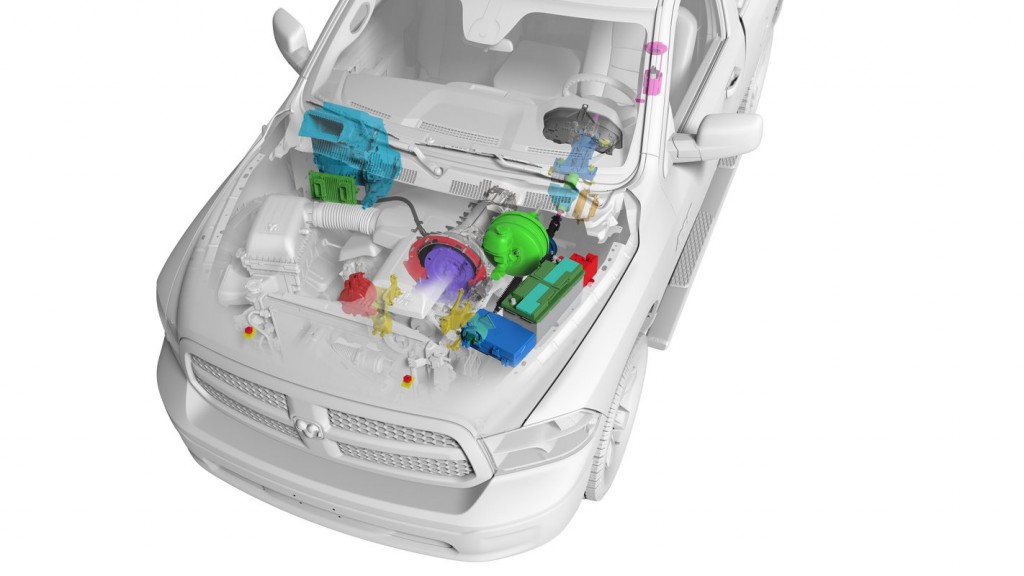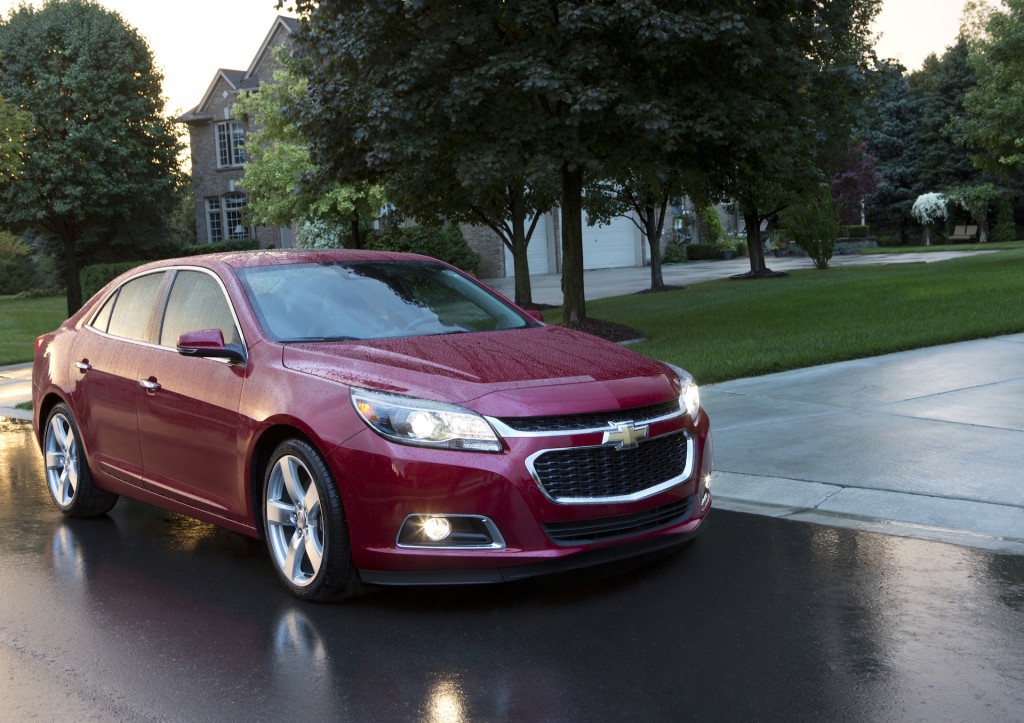As fuel-economy rules get stricter, lithium-ion batteries may no longer be limited to electric cars.
An increasing number of new cars are now being fitted with engine start-stop systems to reduce fuel consumption, and the most advanced of those systems require a stouter battery.
DON'T MISS: Conventional Gasoline Engines A Minority In 2 Years? Not So Fast...
Johnson Controls Inc. hopes to expand the use of these systems even further with a new lithium titanate 12-volt battery.
Developed in collaboration with Toshiba, the battery has a chemistry that recharges quickly, and works well in a wide range of temperatures, JCI claims.

2013 Ram 1500 - engine start-stop system
The battery is designed to be integrated into a car's 12-Volt electrical system as part of a new start-stop setup.
Called "Advanced Start-Stop" by Johnson, it consists of an absorbent glass-mat or enhanced lead-acid battery to start the engine during normal operation and power accessories.
The lithium battery would be used to store regenerative braking energy for restarting when the start-stop function is called into use.
SEE ALSO: Will Ultracapacitors Save Start-Stop Systems From Consumer Wrath?
The company says this arrangement allows the engine to shut down more frequently, and for longer periods of time, resulting in fuel savings of up to 8 percent.
Johnson Controls plans to introduce the new system beginning in 2018. It will likely find use in "micro-hybrids"--essentially vehicles that rely on start-stop for fuel-economy improvements.
Porsche has offered an optional 12-Volt lithium-ion starter battery for a few years now, for the weight reduction over conventional lead-acid equivalents, but it carries a four-figure price and has not been widely adopted.

2015 Chevrolet Malibu
This category is expected to grow as carmakers look to squeeze better fuel efficiency out of more vehicles, without the added cost and change in driving dynamics that come with a full hybrid powertrain.
The Chevrolet Malibu already features a system that--using two 12-volt batteries--allows it to equal the fuel economy of the previous mild-hybrid Malibu Eco.
MORE: Micro-Hybrids To Grow Fast: More Than Start-Stop, Less Than Mild Hybrid
While integrating start-stop into existing 12-volt electrical systems is probably the simplest way to go, Johnson Controls has also discussed a system based around a 48-volt battery pack.
It previously claimed fuel-economy improvements of up to 15 percent over vehicles without the system, but hasn't moved that technology beyond prototype testing yet.
_______________________________________________












